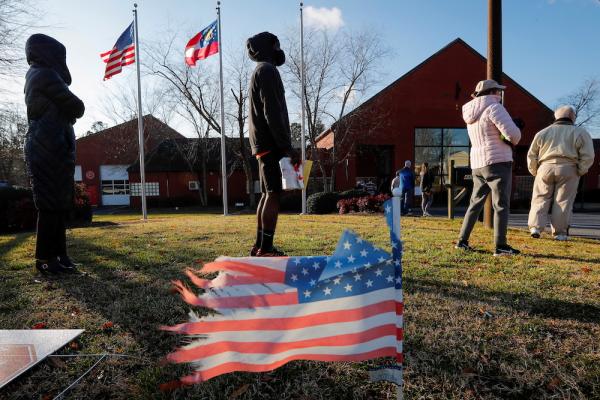Jan 5, 2021
Voter registration and turnout numbers — 3 million voters voted early and 76,000 new Georgia voters registered in time for the runoff — signifies the unprecedented sense of urgency and passion that Georgians are feeling. Georgia voting volume is on track to defy historical trends of general-to-runoff election turnout ratios.
Read the Full Article

Already a subscriber? Login
